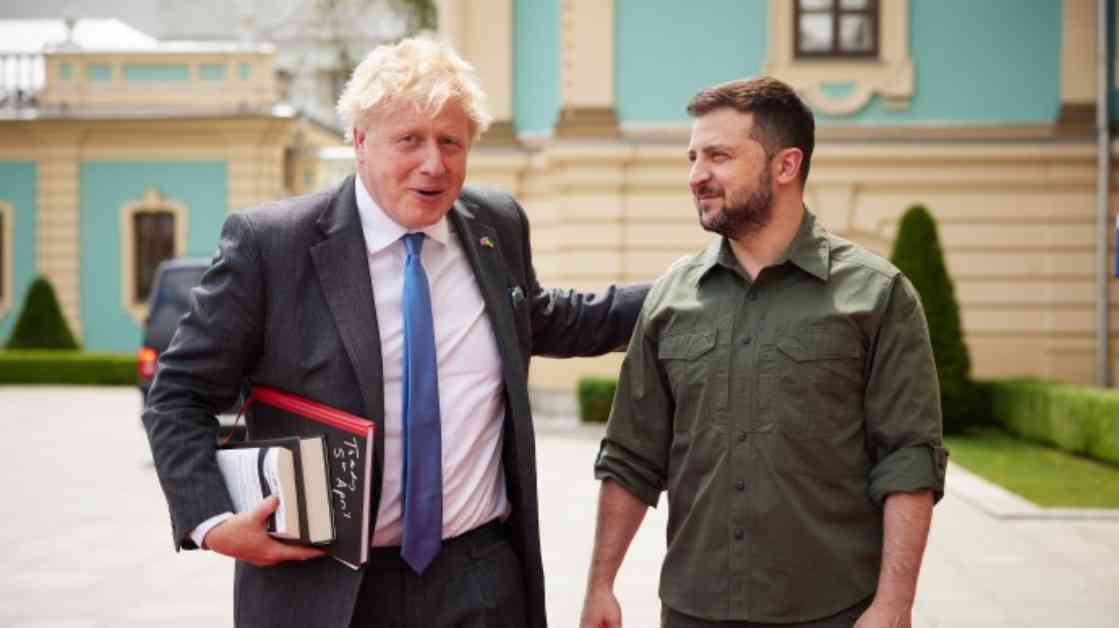**Boris Johnson Calls for End of Russian Empire in Baltics and Ukraine**
In a bold move that has sparked international attention, former British Prime Minister Boris Johnson recently made strong statements urging Russian President Putin to accept the end of the Russian Empire in the Baltics and Ukraine. Johnson’s remarks, made in an interview with Delfi Estonia, were characterized by his direct and candid language, calling Putin a “f***ing idiot” and emphasizing that “there’s no more empire.”
Johnson’s Blunt Critique of Putin
During the interview, Johnson did not mince words when expressing his views on Putin’s actions in the region. He condemned the Russian leader’s approach as “archaic and barbaric,” stressing that Estonia, Latvia, Lithuania, and Ukraine are no longer part of the Russian Empire. Drawing parallels to Britain’s own imperial history, Johnson highlighted the need for countries to adapt to post-imperial roles and emphasized the importance of respecting the sovereignty of other nations.
Support for Ukraine and NATO Membership
Throughout the interview, Johnson demonstrated unwavering support for Ukraine, particularly during the country’s conflict with Russia. He advocated for a strong resistance against Russian aggression, rejecting any notion of compromise that would undermine Ukraine’s sovereignty. Johnson also stressed the importance of Ukraine’s NATO membership as a crucial step towards ensuring its security and stability.
Concerns Over Western Response
In his critique of the West’s approach to the conflict in Ukraine, Johnson expressed frustration over what he perceived as a lack of decisive action. He highlighted the need for a clear roadmap towards Ukrainian NATO membership and criticized the international community for neglecting this crucial discussion. Johnson emphasized the importance of long-term solutions, such as Article 5 guarantees and sustained NATO membership, to address Ukraine’s security concerns effectively.
As a former political leader with a deep interest in international affairs, Johnson’s remarks shed light on the complexities of geopolitical dynamics and the urgent need for a coordinated response to the crisis in Ukraine. His candid commentary reflects a sense of urgency and determination to advocate for the rights and sovereignty of nations facing external threats.
Johnson’s bold stance serves as a reminder of the ongoing challenges in the region and the critical importance of upholding democratic values and international law in the face of aggression. His unwavering support for Ukraine and commitment to promoting stability in the region underscore the need for concerted efforts to address the root causes of conflict and ensure a peaceful future for all nations involved.

















